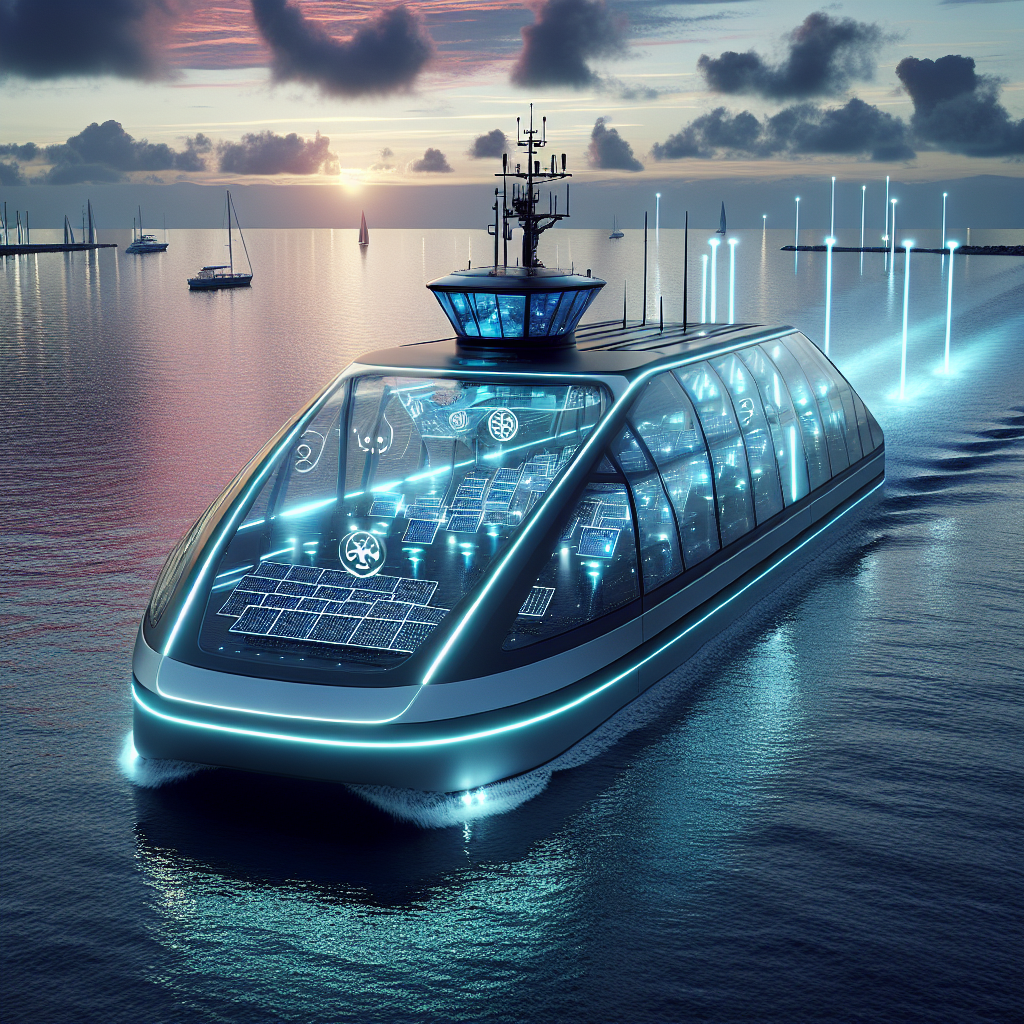The Future of AI-Powered Autonomous Ferries in Transportation
Autonomous technology is rapidly transforming the transportation industry, with self-driving cars, drones, and now autonomous ferries becoming increasingly prevalent. These AI-powered vessels are set to revolutionize the way we think about water transportation, offering a more sustainable and efficient alternative to traditional ferries.
AI-powered autonomous ferries are equipped with sensors, cameras, and GPS technology that allow them to navigate waterways without the need for human intervention. These vessels can analyze their surroundings in real-time, adjusting their course and speed to avoid collisions and ensure safe passage for passengers and cargo.
One of the key benefits of autonomous ferries is their potential to reduce traffic congestion and emissions in urban areas. By providing a more efficient and reliable means of water transportation, these vessels can help alleviate the strain on road infrastructure and reduce the environmental impact of traditional ferry services.
In addition to their environmental benefits, autonomous ferries also have the potential to improve safety and reliability in water transportation. With advanced AI algorithms controlling their movements, these vessels can react faster and more accurately to changing conditions, reducing the risk of accidents and improving overall service quality.
The future of AI-powered autonomous ferries is bright, with many companies investing in the development of these innovative vessels. From startups to established ferry operators, there is a growing interest in harnessing the power of AI to create a new generation of waterborne transportation solutions.
One of the key players in this space is the Finnish company, Norsepower, which has developed an autonomous ferry prototype equipped with its innovative rotor sail technology. This technology harnesses wind power to reduce fuel consumption and emissions, making the vessel more sustainable and cost-effective to operate.
Another company making waves in the autonomous ferry market is Sea Machines, a US-based startup that specializes in autonomous marine technology. Their autonomous control system can be retrofitted onto existing vessels, allowing ferry operators to upgrade their fleets and improve efficiency without the need for a complete overhaul.
As the technology continues to evolve, we can expect to see more autonomous ferries being deployed in a variety of settings, from urban waterways to remote island communities. These vessels have the potential to transform the way we think about water transportation, offering a more sustainable, efficient, and reliable alternative to traditional ferry services.
FAQs:
Q: How do AI-powered autonomous ferries navigate waterways?
A: AI-powered autonomous ferries use a combination of sensors, cameras, and GPS technology to analyze their surroundings and make real-time decisions about their course and speed. These vessels can detect obstacles, other vessels, and changes in weather conditions, allowing them to navigate safely and efficiently without the need for human intervention.
Q: Are AI-powered autonomous ferries safe?
A: Autonomous ferries are designed to prioritize safety above all else, with advanced AI algorithms controlling their movements and ensuring they comply with maritime regulations. These vessels are equipped with redundant systems and fail-safes to minimize the risk of accidents and ensure the safety of passengers and cargo.
Q: What are the environmental benefits of AI-powered autonomous ferries?
A: Autonomous ferries offer a range of environmental benefits, including reduced fuel consumption, emissions, and noise pollution. By providing a more sustainable and efficient alternative to traditional ferry services, these vessels can help reduce the environmental impact of water transportation and contribute to a more sustainable future.
Q: How do AI-powered autonomous ferries improve efficiency in water transportation?
A: AI-powered autonomous ferries can operate 24/7 without the need for breaks or rest periods, allowing them to provide a more reliable and efficient service than traditional ferry operators. These vessels can optimize their routes and speeds based on real-time data, ensuring they reach their destinations on time and in the most cost-effective manner.
Q: What is the future of AI-powered autonomous ferries?
A: The future of AI-powered autonomous ferries is bright, with many companies investing in the development of these innovative vessels. From startups to established ferry operators, there is a growing interest in harnessing the power of AI to create a new generation of waterborne transportation solutions. As the technology continues to evolve, we can expect to see more autonomous ferries being deployed in a variety of settings, offering a more sustainable, efficient, and reliable alternative to traditional ferry services.

